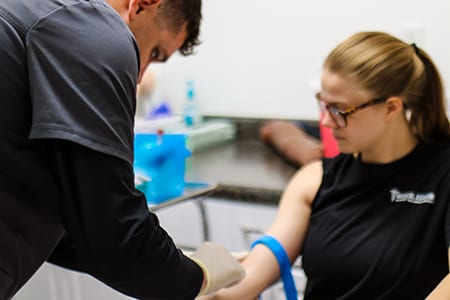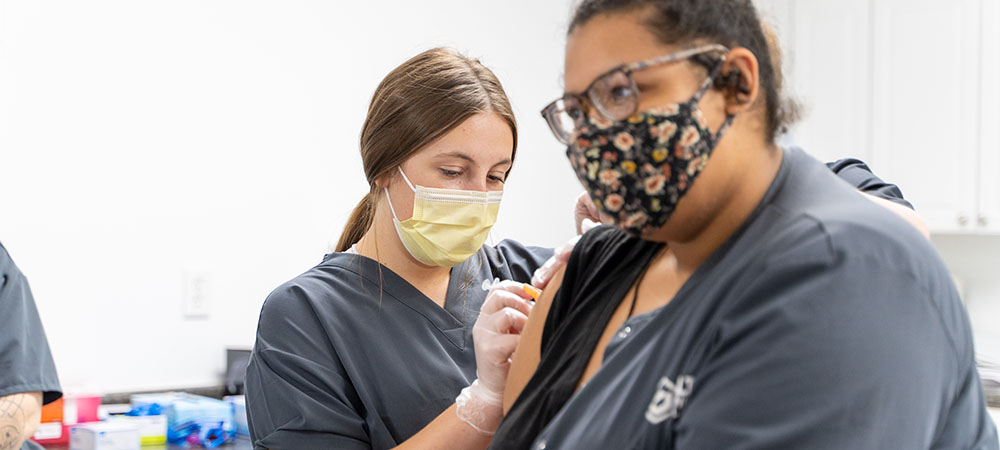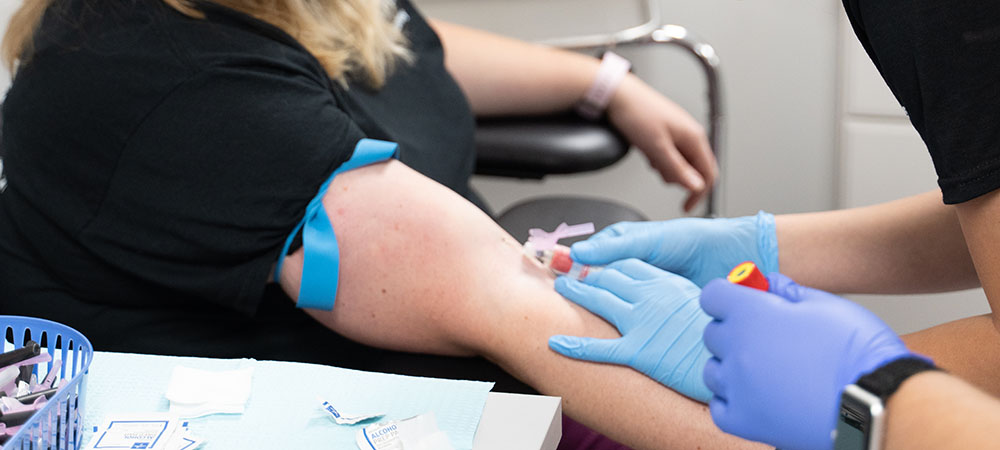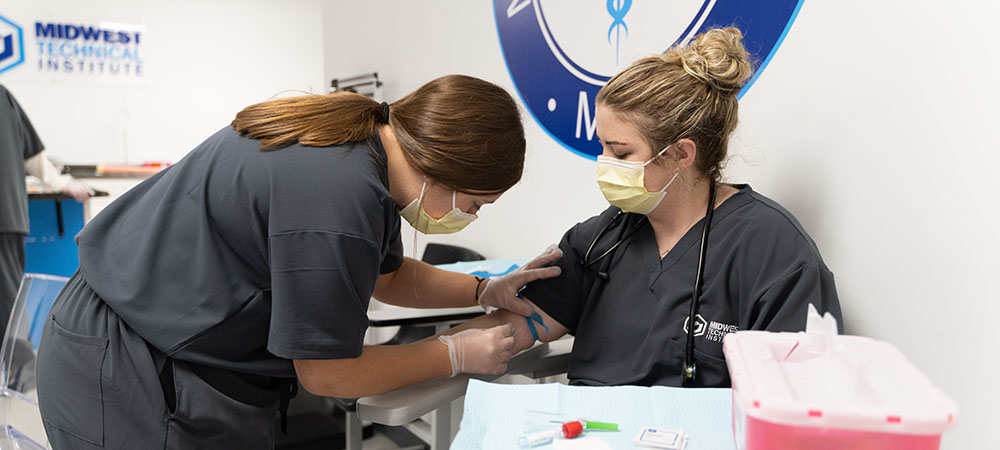A career in phlebotomy can be a great fit for a detail-oriented, compassionate person. Phlebotomy is when a needle is used to draw blood from a patient, and it is performed by phlebotomists in hospitals, doctor’s offices, and labs [1]. Mobile phlebotomists sometimes travel [2] for insurance providers or other jobs.
The process of inserting the needle to draw blood is sometimes called venipuncture [3]. A phlebotomist will usually draw blood for lab testing [4] of various illnesses, blood transfusions, research, or blood donations.
The projected job growth rate [5] for phlebotomy is 25% through 2026, which is much faster than the average for all other occupations (7%). Phlebotomists are usually professionally certified, which is possible through a number of organizations including American Medical Technologists [6] and the National Center for Competency Testing [7] (NCCT).
How Do You Become a Phlebotomist?
Are you interested in a phlebotomy career, but don’t know where to begin? The first step is finding the right training and meeting the requirements necessary to become a phlebotomist.
Training
Finding phlebotomy courses near you is an important first step to begin your phlebotomy training. Midwest Technical Institute (MTI) offers a five-week Phlebotomy Course to become a phlebotomist. This course is offered at the Springfield, IL and East Peoria, IL campus locations.The Phlebotomy Course at MTI includes:
- Hematology
- Phlebotomy
- Basic Anatomy
- Medical Terminology
- HIPPA Requirements
Certification
The length of phlebotomy courses vary depending on the school you choose and the required coursework. There are a variety of different certification options [2] that aspiring phlebotomists can pursue depending on the type of course they completed, work experience, and education.Students who complete the Phlebotomy Course at MTI will be prepared to take the National Center for Competency Testing (NCCT) certification exam. Successfully passing this exam is a requirement to becoming a Certified Phlebotomy Technician (CPT). MTI students will receive hands-on training from dedicated instructors with real-world experience while pursuing their phlebotomy training.
What Skills Do Phlebotomists Need For Their Careers?
Phlebotomists must be able to handle many different clinical responsibilities [2], including:
- Locating a vein
- Applying a tourniquet
- Cleaning the area with an alcohol swab
- Venipuncture to draw the blood
- Properly using syringes, butterfly needles and vacuum blood collection tubes
- Applying gauze and bandages
- Coaching patients through the process
- Preparing the samples for transfer to the lab
Interested in Learning More About Phlebotomy?
Fill out the form below to receive info about our career training programs.



